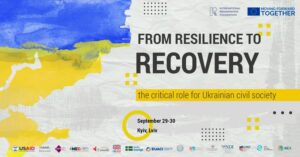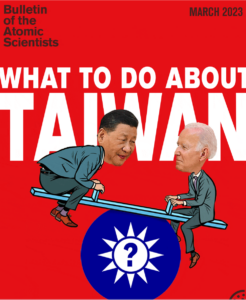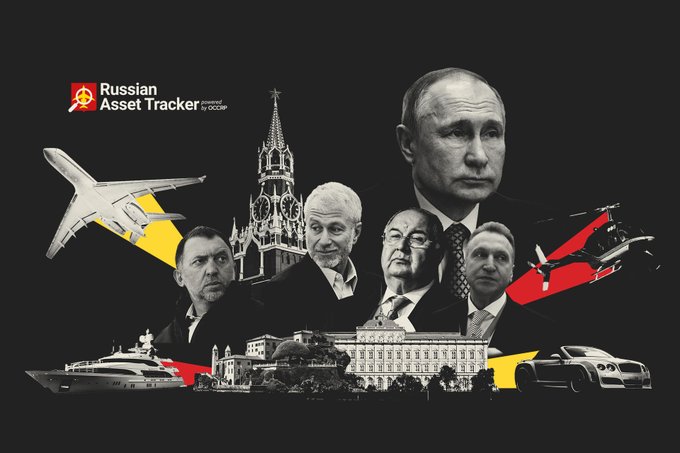
Credit: NDI
Ukraine does not want to be at war with Russia. Nor do we. But it has become increasingly clear that Russia decided a long time ago that it is at war with us, say Petr Fiala, Eduard Heger, and Mateusz Morawiecki.
For many years, the Kremlin has systematically undermined international stability and security by violating international law, using or threatening to use force, and undermining democratic institutions through political and hybrid warfare. Its act of aggression against Ukraine is merely the most extreme expression of these ongoing actions, they write for Foreign Affairs:
Now is not the time to lessen our resolve. As the fight on the battlefield intensifies this spring, we look toward the summer and fall. We must continue to stand by Ukraine without qualification or reservation. That includes making sure that it receives all the weapons and financial assistance it needs to defeat Russia and fully restore its sovereignty and territorial integrity. This is a legitimate request by Ukraine’s democratically elected government.
 From Kyiv to Taipei is 5,000 miles (8,000km). Yet geopolitically, Ukraine and Taiwan are closely linked, notes CEPA analyst Edward Lucas:
From Kyiv to Taipei is 5,000 miles (8,000km). Yet geopolitically, Ukraine and Taiwan are closely linked, notes CEPA analyst Edward Lucas:
- Their biggest shared problem is legitimacy. Russia does not regard Ukraine as a proper country. Vladimir Putin dismissed it as a mere collection of territories in 2008. …Similarly, as seen from Beijing, Taiwan is a rebel province, unfinished business from the civil war that ended on the mainland in 1949.
- A second similarity is that the regimes in Beijing and Moscow have created just the problem they were trying to avoid.
Global authoritarianism, as we are seeing through the behavior of Beijing and Moscow, is being aggressively pushed as an alternative to democracy in a bid to upend the global order and to advantage might over right, analysts Justin Bassi and Bec Shrimpton observe.
To confront and deter this push, liberal democracies need to move beyond talking about the connectedness of security in the Pacific and Atlantic regions and act on it, they write for ASPI Strategist. Stability, security and prosperity require working together and harnessing our strengths. By all means, this cooperation should recognize unique regional needs, leadership and contributions, but it should sit under a collective strategy.

OCCRP
The G7 democracies have not managed to seize Russian money for Ukraine‘s recovery. There is even a possibility that the funds will return to Moscow after the war, Ukrainska Pravda reports:
The West blocked the assets of Russian businessmen worth US$30 billion, but when it came to the seizure, the process began to slow down. ….In 2023, it will become clear whether Western countries will have the political will to make Russia pay for its crimes, or whether this war will become a convenient precedent for impunity for other aggressive regimes.
If Western decision-makers had taken a more robust & consistent attitude, #Ukraine & #Taiwan would both be in far better positions. Signal weakness for long enough, and adversaries take note, @edwardlucas writes for @NEDemocracy partner @cepa. https://t.co/gvKhe2KyVy
— Democracy Digest (@demdigest) April 24, 2023
History has its moments, and this is one of them. That is why we in Europe have stepped up to do more, Fiala, Heger, and Morawiecki add. And it is why we must stay the course in Ukraine, defeating the dark forces of revanchism and supporting Kyiv until victory.
History has its moments, and this is one of them. That is why democracies must stay the course in #Ukraine, defeating the dark forces of revanchism and supporting Kyiv until victory, @P_Fiala, @eduardheger, & @MorawieckiM write for @ForeignAffairs. https://t.co/UOEJZ1IW28
— Democracy Digest (@demdigest) April 24, 2023







